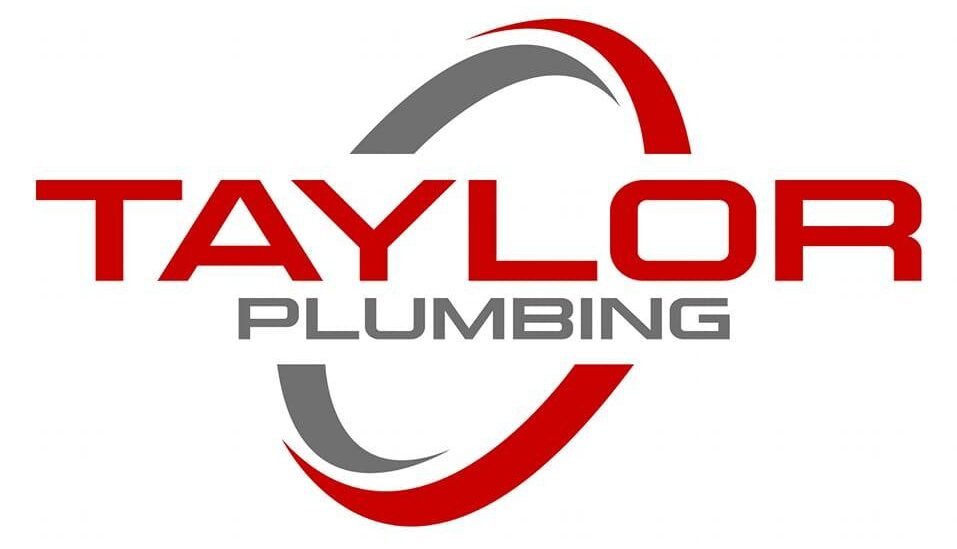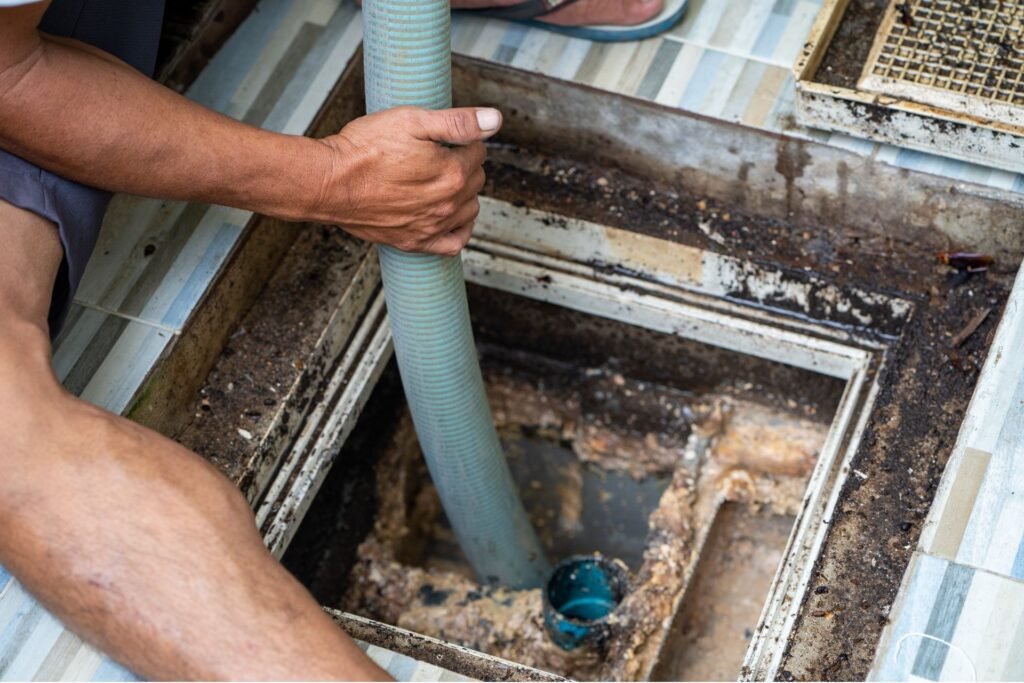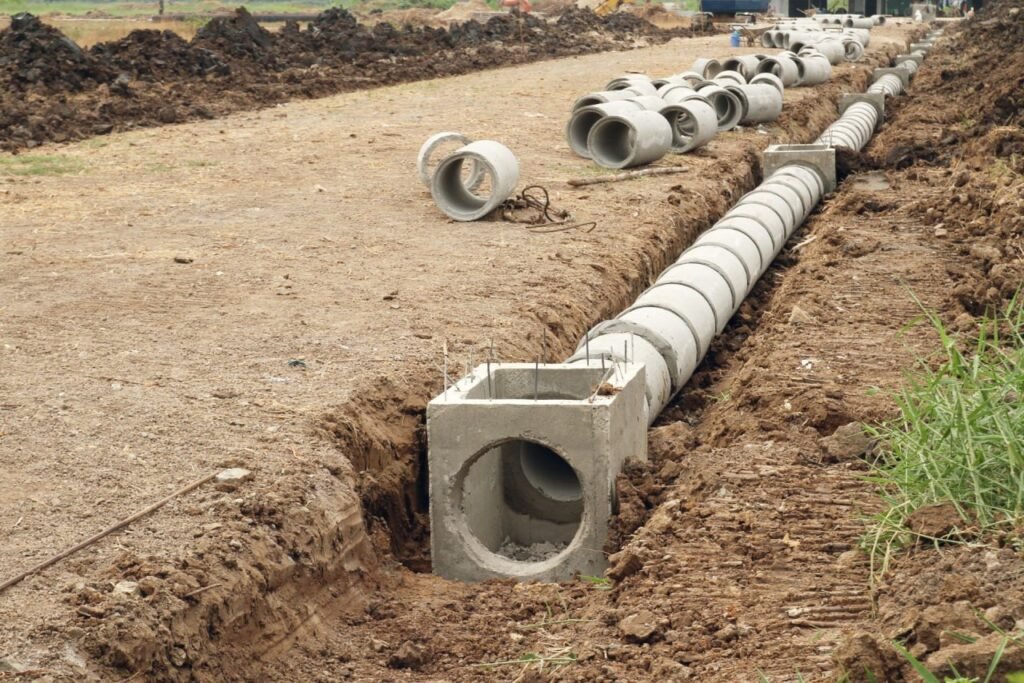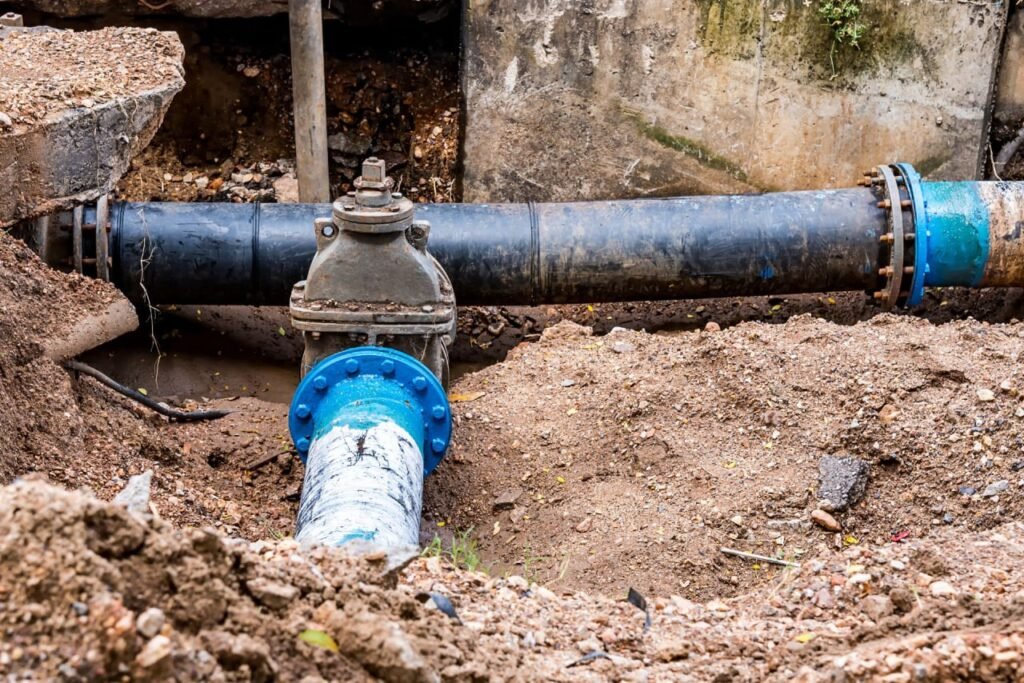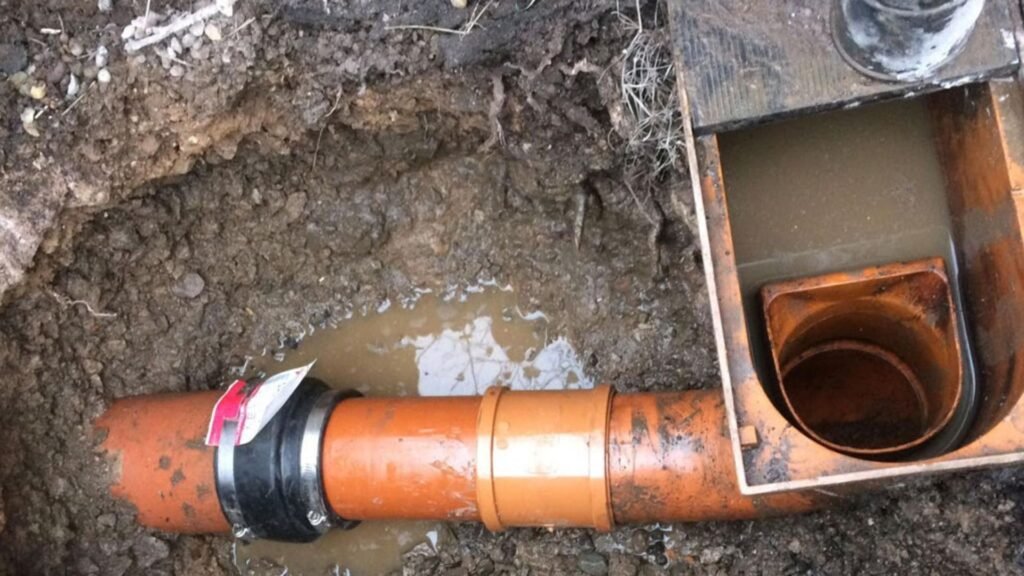Welcome to our guide on how to tell when your septic tank needs cleaning. If you’ve ever wondered about the hidden system beneath your yard that quietly handles all your household waste, you’re not alone. While it’s easy to forget about your septic tank until something goes wrong, regular maintenance is crucial to avoid unpleasant and costly problems. In this post, we’ll walk you through the key signs that your septic tank is overdue for cleaning, helping you stay ahead of potential issues and ensuring your system runs smoothly. Let’s dive into what you need to know to keep your home safe, clean, and functioning properly.
A septic tank needs cleaning when you notice signs like slow drains, unpleasant odors, overly green grass patches, standing water in the yard, or sewage backup in your home. Regular cleaning every 3-5 years is recommended, but it can vary based on household size, tank size, and water usage. Ignoring these signs can lead to costly repairs and environmental damage.
Table of Contents
How A Septic Tank Works
Basic Explanation
A septic tank is an essential part of many homes, especially in rural areas, where it’s used to manage and treat wastewater. At its core, a septic system is a simple yet effective method of waste management that operates mostly underground. Here’s a straightforward breakdown of how it works:
When you flush the toilet, run a tap, or use the washing machine, the wastewater from your home flows into the septic tank, which is usually a large, watertight container buried in your yard. This tank is where the magic—or rather, the science—happens.
Once the wastewater enters the tank, it separates into three layers:
1. The Scum Layer: This is the top layer, where lighter materials like oils, grease, and soap residue float to the surface.
2. The Effluent Layer: The middle layer is the liquid portion of the wastewater, called effluent. This is the part that eventually flows out of the tank and into the drain field.
3. The Sludge Layer: Heavier materials, such as solid waste, sink to the bottom, forming the sludge layer.
Over time, naturally occurring bacteria in the septic tank break down the solid waste, reducing its volume. The remaining liquid effluent then flows out of the tank into a network of perforated pipes, known as the drain field or leach field. Here, the effluent is slowly absorbed into the soil, where it undergoes further natural filtration and treatment, effectively neutralizing harmful bacteria and pathogens before the water re-enters the groundwater system.
Importance of Maintenance
Understanding how your septic system works is crucial for its longevity and proper functioning. A septic tank isn’t a “set it and forget it” system; regular maintenance is vital to avoid costly repairs and environmental damage. Here’s why:
First, knowing the basics of your septic system allows you to identify potential problems early. For example, if you notice that your drains are slow, there’s a foul odor around your property, or there’s standing water near your drain field, these could be signs that your septic system is failing. Early detection can save you from the headache of a complete system overhaul.
Moreover, regular maintenance, such as pumping out the sludge from your tank every 3-5 years, ensures that your system continues to operate efficiently. Without this crucial upkeep, the sludge can build up to a point where it starts to overflow into the drain field, leading to blockages, system backups, and even the contamination of local water sources.
In short, understanding and maintaining your septic system not only protects your investment in your property but also safeguards the health of your environment and community. By being proactive and informed, you can ensure that your septic system serves you well for many years to come.
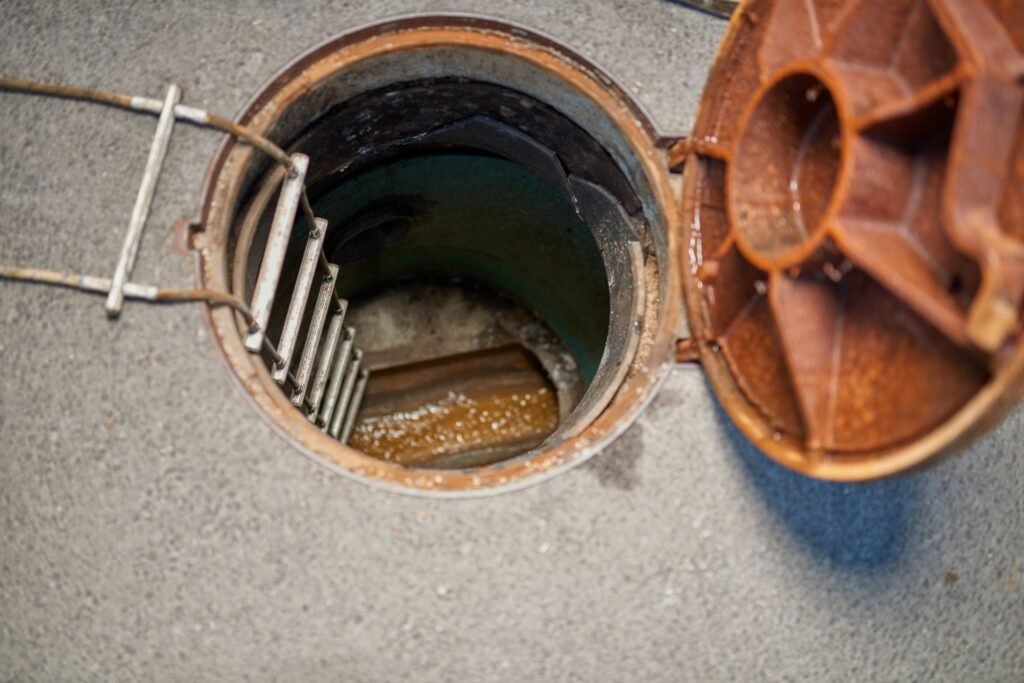
Common Signs Your Septic Tank Needs Cleaning
Keeping an eye out for the early warning signs that your septic tank needs cleaning can save you from costly repairs and unpleasant experiences. Here’s a closer look at the most common indicators that your septic system may be overdue for maintenance.
Slow Drains and Toilets
- Explanation: One of the first signs that your septic tank might need cleaning is when your drains or toilets begin to slow down. This happens because, over time, the solid waste in your septic tank builds up, reducing the tank’s capacity to separate and treat wastewater effectively. When the tank is nearing its capacity, water and waste have a harder time moving through your plumbing system, leading to sluggish drains.
- What to Look For: Pay attention to more than just slow drainage. If you hear gurgling sounds coming from your pipes or notice water backing up into sinks, tubs, or toilets, these are clear signals that something is amiss. The gurgling noise often indicates that air is trapped in your plumbing system due to a blockage, while water backing up is a more serious symptom that suggests the system is overwhelmed and may be close to failing.
Unpleasant Odors
- Explanation: A strong, unpleasant odor near your drains, around your yard, or in your home can be a telltale sign that your septic tank is full and needs immediate attention. When a septic tank is too full, the gases that are typically contained within the system can escape, causing a noticeable and often foul smell. This is more than just an inconvenience; it’s a sign that your septic system is under stress.
- Potential Health Hazards: Ignoring these odors can pose significant health risks. The gases released, such as hydrogen sulfide, can be toxic, and prolonged exposure can lead to respiratory problems and other health issues. Moreover, if the tank overflows, it can contaminate the groundwater and surrounding soil, potentially leading to serious environmental and health hazards.
Lush, Green Grass Over the Drain Field
- Explanation: While green grass is typically a sign of a healthy lawn, unusually lush and vibrant patches over your septic drain field can be a red flag. This often occurs when the septic system is leaking or overflowing, causing untreated wastewater to seep into the soil, providing an abundance of nutrients to the grass above.
- Comparison: To determine if your septic tank is the culprit, compare the lush areas with the surrounding grass. If the grass directly above the drain field is significantly greener and healthier than the rest of your lawn, it’s likely due to excessive moisture and nutrients from a malfunctioning septic system.
Standing Water in the Yard
- Explanation: Pooling or standing water in your yard, especially around the drain field, is a clear indicator that your septic system is failing. When a septic tank is full, or if there’s a blockage in the system, wastewater can rise to the surface and create soggy patches or visible pools of water.
- Why It’s a Red Flag: Standing water not only indicates a serious problem with your septic system but also poses a risk of environmental contamination. If left unaddressed, this water can carry harmful bacteria and pathogens, potentially contaminating nearby water sources and posing a threat to both human health and the local ecosystem. The urgency to address this issue cannot be overstated—immediate action is necessary to prevent further damage and contamination.
Sewage Backup
- Explanation: One of the most alarming signs that your septic tank needs cleaning is when raw sewage starts backing up into your home. This typically occurs when the tank is so full that there’s no more room for incoming waste, causing it to flow back into the house rather than being properly contained and treated.
- Immediate Action Required: If you experience a sewage backup, it’s crucial to take immediate action. Not only is this a sign that your septic system has reached a critical point of failure, but it also presents severe health risks. Exposure to raw sewage can lead to serious illness, and the damage to your home can be extensive and costly. Contact a septic professional as soon as possible to prevent further harm and restore the safety and functionality of your system.
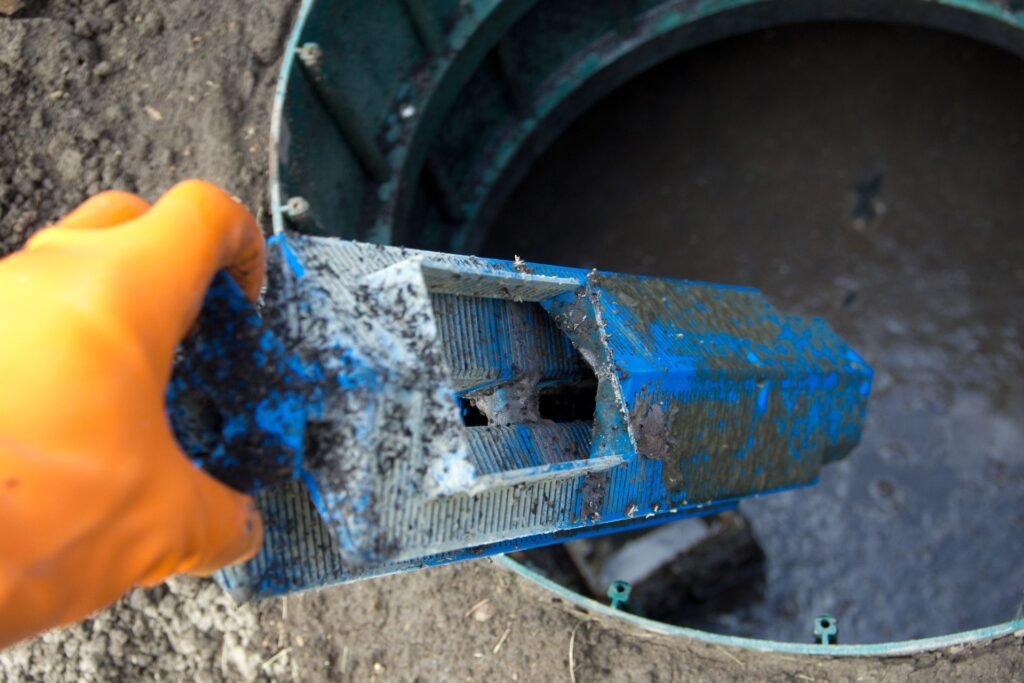
How Often Should You Clean Your Septic Tank?
General Guidelines
When it comes to maintaining your septic tank, one of the most common questions homeowners ask is, “How often should I clean my septic tank?” The general rule of thumb is to clean or pump out your septic tank every 3 to 5 years. However, this is not a one-size-fits-all recommendation. The frequency with which you need to clean your septic tank can vary depending on several factors specific to your household and usage patterns.
Understanding these guidelines is crucial because regular cleaning is essential for preventing potential issues such as blockages, overflows, and even system failure. Neglecting regular maintenance can lead to costly repairs or replacements, not to mention the inconvenience and health hazards of a malfunctioning septic system. Therefore, while 3 to 5 years is a good starting point, it’s essential to assess your unique situation to determine the optimal cleaning schedule for your septic tank.
Factors Influencing Cleaning Frequency
Several factors can influence how often your septic tank should be cleaned. Understanding these factors will help you tailor the general guidelines to better suit your needs.
1. Household Size
The size of your household is one of the most significant factors in determining how often your septic tank needs cleaning. Simply put, the more people living in your home, the more wastewater your septic system will need to process. Every flush of the toilet, every shower, and every load of laundry contributes to the amount of waste entering the septic tank.
For instance, a family of four will generally require more frequent septic tank cleaning than a couple living alone. If your household size increases—such as when family members come to live with you or during extended visits—you may need to adjust your septic tank cleaning schedule accordingly.
2. Tank Size
The size of your septic tank is another critical factor. Larger tanks can hold more waste, allowing for longer intervals between cleanings. Conversely, if your septic tank is on the smaller side, it will fill up more quickly, necessitating more frequent cleanings.
For example, if you have a smaller tank and a larger household, you might find that the standard 3 to 5-year guideline doesn’t apply to you. In such cases, cleaning your septic tank every 2 to 3 years might be more appropriate to prevent overflows and maintain system efficiency.
3. Water Usage
Your household’s water usage habits also play a crucial role in determining how often you should clean your septic tank. High water usage means more wastewater is entering the septic system, which can lead to faster accumulation of solids in the tank.
Consider your household’s daily routines: Do you run the dishwasher and washing machine frequently? Do you have long showers? Are there leaks in your plumbing that cause continuous water flow into the system? All these factors contribute to how quickly your septic tank fills up. If your household tends to use a lot of water, you may need to clean your septic tank more often than the average household.
Additionally, it’s worth noting that certain activities, such as using a garbage disposal or flushing non-biodegradable items down the toilet, can increase the volume of solid waste in the septic tank, further necessitating more frequent cleaning.
While the general recommendation is to clean your septic tank every 3 to 5 years, it’s crucial to consider your household’s unique factors, such as size, tank capacity, and water usage habits. By understanding these influences, you can develop a cleaning schedule that keeps your septic system functioning smoothly and prevents costly issues down the line. Regular maintenance and monitoring of your septic system are key to ensuring its longevity and reliability, making it a vital part of homeownership.

The Risks Of Ignoring Septic Tank Maintenance
Neglecting septic tank maintenance isn’t just a minor oversight—it can lead to severe consequences for your property, your health, and the environment. Understanding these risks can help homeowners recognize the importance of regular septic system care.
Environmental Damage
Ignoring septic tank maintenance can have devastating effects on the environment. One of the most significant risks is groundwater contamination. When a septic system fails, untreated wastewater can seep into the soil and eventually reach the groundwater, which is often a source of drinking water for many communities. This contamination can introduce harmful substances like nitrates, phosphates, and bacteria into the water supply, posing serious risks to human health and the ecosystem.
Moreover, the harm to local ecosystems cannot be understated. The excess nutrients from untreated wastewater can lead to the overgrowth of algae in nearby water bodies—a process known as eutrophication. This can deplete oxygen levels in the water, killing fish and other aquatic life, and disrupting the natural balance of the ecosystem. The result is a degraded environment that can take years, if not decades, to recover.
Property Damage
Neglecting your septic system can also lead to significant property damage, which often comes with a hefty price tag. When a septic system fails, the first signs might be slow drains, unpleasant odors, or even sewage backups inside the home. If these warning signs are ignored, the situation can escalate quickly, leading to a complete system failure.
A failed septic system can cause extensive damage to your property. For instance, untreated sewage can saturate the soil around the tank, leading to soggy, foul-smelling patches in your yard. In severe cases, the sewage can seep into the foundation of your home, causing structural damage. The cost of repairing such damage can be astronomical, often running into tens of thousands of dollars. This includes the expense of replacing the entire septic system, repairing the damaged property, and possibly even dealing with legal issues if the failure impacts neighboring properties.
Health Risks
Perhaps the most immediate and alarming consequence of ignoring septic tank maintenance is the health risk it poses to you and your family. A failing septic system can expose you to a variety of harmful bacteria, viruses, and pathogens, which can cause serious illnesses.
For example, E. coli and other fecal coliform bacteria commonly found in untreated sewage can cause gastrointestinal illnesses, skin infections, and respiratory problems. In more severe cases, exposure to these pathogens can lead to life-threatening conditions like hepatitis or dysentery. Children, the elderly, and those with weakened immune systems are particularly vulnerable to these health risks.
Furthermore, the presence of sewage in your home or yard can attract pests like flies, rodents, and mosquitoes, which can spread diseases even further. The health implications of a failed septic system are severe and underscore the importance of regular maintenance.
The risks of ignoring septic tank maintenance are too significant to overlook. From environmental damage and costly property repairs to serious health risks, the consequences can be far-reaching and devastating. Regular septic system maintenance is not just a routine task; it’s a critical responsibility that protects your home, your health, and the environment. By staying proactive with your septic tank care, you can avoid these risks and ensure a safe, healthy living environment for you and your family.
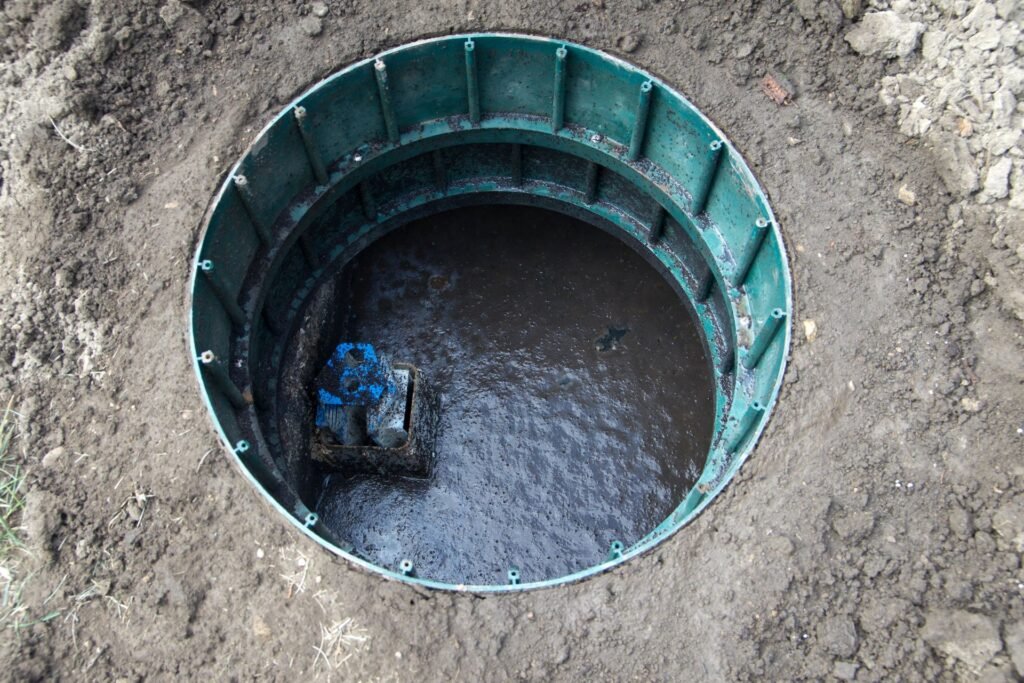
Professional Vs. DIY Septic Tank Cleaning
When it comes to maintaining your septic tank, the decision between hiring a professional or attempting a DIY approach is a significant one. Both options have their merits and drawbacks, depending on your specific situation, expertise, and comfort level with handling potentially hazardous waste. Understanding the benefits and risks associated with each method will help you make an informed choice.
Professional Cleaning
Benefits
Opting for professional septic tank cleaning is often the safest and most effective route. Professionals come equipped with specialized tools and have the experience to handle the complexities of septic systems. They can quickly identify potential issues that may not be obvious to an untrained eye, such as cracks, leaks, or blockages, which could lead to more serious problems if left unattended.
One of the major benefits of professional cleaning is peace of mind. You know the job is being done thoroughly and in compliance with local regulations. Professionals are also trained to dispose of waste properly, reducing the risk of environmental contamination. Additionally, they can provide valuable advice on maintaining your septic system, helping you avoid future problems and potentially costly repairs.
What to Expect
When you hire a professional service for septic tank cleaning, you can expect a comprehensive and efficient process. The service typically begins with an inspection, where the technician assesses the condition of your tank and surrounding areas. They’ll look for any signs of damage, wear, or issues that could compromise the system’s function.
Once the inspection is complete, the actual cleaning process begins. Professionals use powerful vacuum equipment to remove the sludge and scum that build up in the tank over time. This equipment ensures that even the most stubborn waste is effectively removed. After cleaning, the technician may perform a final inspection to ensure everything is in order and the system is functioning correctly. They might also offer recommendations for ongoing maintenance or repairs if any issues were identified.
DIY Cleaning
When It’s Possible
While professional cleaning is generally recommended, there are situations where a DIY approach might be feasible. For instance, if your septic tank is relatively small, and you have experience handling similar tasks, you might consider cleaning it yourself. DIY cleaning could also be an option if you are facing a minor issue, like a small clog, and feel confident in your ability to address it safely.
However, it’s important to note that DIY septic tank cleaning is not for everyone. It requires a good understanding of how septic systems work and the proper tools to get the job done. If you’re considering this route, it’s crucial to assess your skills and ensure you have the necessary equipment before proceeding.
Risks and Precautions
DIY septic tank cleaning comes with significant risks, particularly if you’re not well-versed in the process. Without the proper knowledge, you might inadvertently cause damage to your septic system, leading to costly repairs or even a complete system failure. Mishandling the waste can also pose serious health risks, as septic tanks contain harmful bacteria and gases that can be dangerous if not handled correctly.
To minimize risks, it’s essential to take proper precautions. This includes wearing protective gear such as gloves, masks, and goggles to protect yourself from exposure to harmful substances. You should also ensure that you have the correct tools for the job, such as a septic pump or vacuum, and that you fully understand how to use them. Additionally, be aware of local regulations regarding waste disposal, as improper disposal can lead to environmental contamination and legal issues.
In conclusion, while DIY septic tank cleaning is possible in certain situations, it’s generally safer and more effective to leave this task to professionals. They have the expertise, tools, and knowledge to handle the job correctly, ensuring your septic system remains in good working order. If you do decide to go the DIY route, make sure you are fully prepared and take all necessary precautions to protect yourself and your property.

How To Choose The Right Septic Tank Service Provider
Choosing the right septic tank service provider is crucial for maintaining the health and longevity of your system. Not all service providers are created equal, and finding a trustworthy professional can save you time, money, and future headaches. Here’s a comprehensive guide to help you make an informed decision.
What to Look For
When selecting a septic tank service provider, there are several key factors to consider:
- Certifications: Always check if the service provider holds the necessary certifications and licenses required in your area. This not only ensures they meet industry standards but also gives you peace of mind knowing they are qualified to handle the job. A certified provider is more likely to follow the best practices and adhere to local regulations.
- Experience: Experience matters. Providers with a long track record are typically more reliable and have encountered various challenges, making them better equipped to handle your specific needs. Ask how many years they’ve been in the business and if they have experience with systems similar to yours.
- Reviews: Customer reviews and testimonials are valuable resources. Look for feedback on their website, Google, or other review platforms. Pay attention to both positive and negative comments, as they can give you insight into the provider’s strengths and weaknesses. Providers with consistently high ratings and satisfied customers are often a safer choice.
- Local Knowledge: A provider with local knowledge is an asset. They are familiar with the specific regulations, soil conditions, and common issues in your area. This local expertise allows them to offer more accurate advice and efficient solutions tailored to your needs.
Questions to Ask
Before hiring a septic tank service provider, it’s essential to ask the right questions to ensure they are the right fit for your needs. Here are some key questions to consider:
1. Are you licensed and insured?
This is non-negotiable. A licensed and insured provider protects you from liability in case of accidents or damages during the service.
2. How long have you been in business?
Experience is crucial. Providers with more years in the industry are likely to have more knowledge and a proven track record.
3. Can you provide references or testimonials?
A reputable provider should have no problem sharing references or directing you to customer testimonials. This helps you verify their quality of service.
4. What types of septic systems do you have experience with?
Ensure the provider is familiar with the type of system you have. Different systems may require specific expertise.
5. What is included in your service?
Clarify what services are covered in their quote. This prevents any surprises later on and ensures you get the comprehensive care your system needs.
6. How do you handle emergencies?
Septic issues can arise suddenly. Ask about their availability for emergency services and response times.
7. Do you offer any guarantees or warranties?
A service provider that stands by their work will often offer guarantees or warranties. This adds an extra layer of confidence in their services.
Red Flags
While searching for the right septic tank service provider, be on the lookout for these red flags that may indicate a provider is not reputable:
- Lack of Certification or Licensing: If a provider cannot produce the necessary certifications or licenses, it’s a major red flag. This may indicate they are not qualified or are operating outside of legal guidelines.
- No References or Poor Reviews: Beware of providers who are unwilling or unable to provide references. Similarly, a history of poor reviews or unresolved complaints is a sign that the provider may not be trustworthy.
- Unusually Low Prices: While it’s natural to look for a good deal, be cautious of providers who offer prices that seem too good to be true. Extremely low rates may indicate a lack of experience, subpar service, or hidden costs.
- Pressure to Make Immediate Decisions: Reputable providers will give you time to make an informed decision. If you feel pressured to sign a contract or make a payment immediately, take a step back and reconsider.
- Lack of Written Estimates or Contracts: Always insist on a written estimate and a formal contract before any work begins. Providers who hesitate to put agreements in writing may not have your best interests in mind.
By taking the time to evaluate potential septic tank service providers carefully, you can avoid pitfalls and choose a partner who will help keep your system in top condition for years to come.
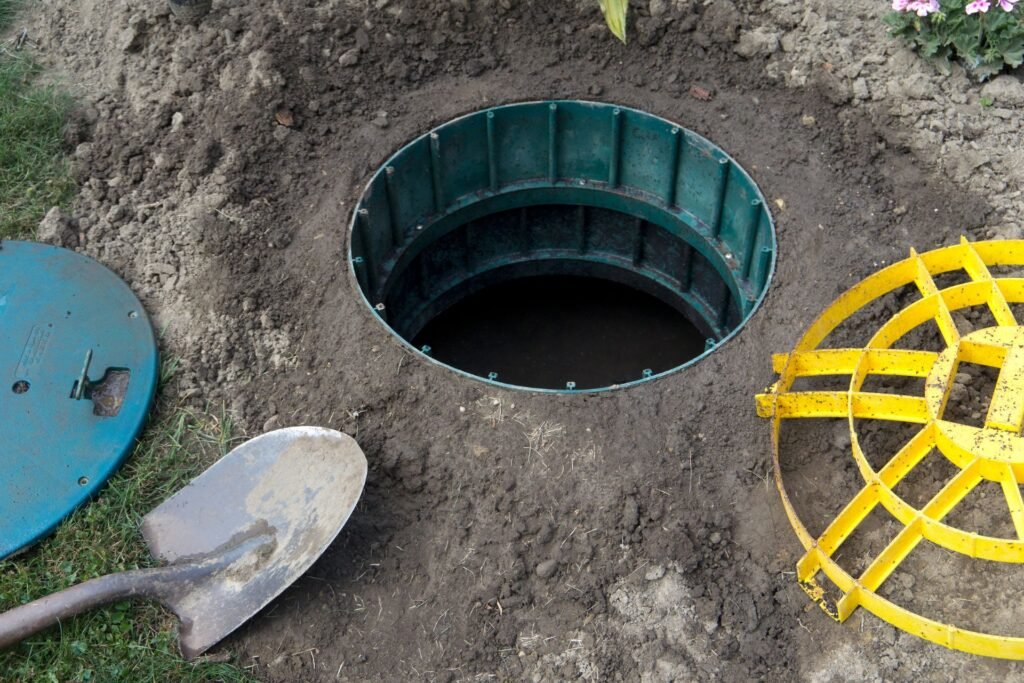
Preventative Maintenance Tips
Maintaining your septic system isn’t just about fixing problems when they arise—it’s about preventing those problems in the first place. A proactive approach to maintenance can save you money, extend the life of your septic system, and help avoid unpleasant surprises. Here are some key tips to keep your system running smoothly.
Regular Inspections
Why Inspections Matter
Imagine driving a car for years without ever checking the oil or taking it in for a service. Eventually, things will go wrong, and the repairs will likely be costly. Your septic system is no different. Regular inspections are crucial for catching potential issues before they become serious problems. Even if everything seems fine, an annual check-up by a professional can identify hidden concerns that aren’t obvious on the surface. These inspections can spot early signs of wear and tear, blockages, or leaks, allowing for timely repairs that could prevent a costly and messy system failure down the road.
Think of it as an investment in peace of mind. With regular inspections, you’re ensuring that your septic system remains in top shape, which in turn protects your property value and prevents any unexpected disruptions to your daily life.
Water Conservation
Practical Tips
Conserving water isn’t just good for the environment; it’s essential for the health of your septic system. The less water that flows into your system, the less strain there is on the system overall, and the longer it will last between cleanings. Simple changes in your daily habits can make a big difference.
Start by fixing any leaks in your home, no matter how minor they may seem. A dripping faucet or a constantly running toilet can add up to a significant amount of water over time, all of which your septic system has to handle. Consider installing low-flow fixtures, such as showerheads and toilets, which use less water without sacrificing performance.
Another easy way to reduce water usage is by spreading out activities that require a lot of water, like doing laundry or running the dishwasher. Instead of doing multiple loads back-to-back, spread them out over several days to avoid overwhelming your septic system. By making these small adjustments, you can help extend the life of your septic system and reduce the frequency of necessary cleanings.
Proper Waste Disposal
What Not to Flush
Your septic system is designed to handle wastewater and human waste, but it’s not a garbage can. Flushing or draining the wrong things into your system can cause clogs, blockages, and even total system failure. It’s important to educate everyone in your household about what should and shouldn’t go down the drain.
First and foremost, avoid flushing anything other than toilet paper and human waste. Items like wet wipes, feminine hygiene products, diapers, and cotton swabs may seem harmless, but they don’t break down in the septic tank and can cause serious blockages. Similarly, kitchen grease, oils, and fats should never be poured down the drain. These substances can solidify in your pipes, leading to clogs that are difficult and expensive to remove.
Even some seemingly safe items, like coffee grounds or egg shells, can accumulate over time and contribute to blockages. When in doubt, throw it out! By being mindful of what goes into your septic system, you’re helping to ensure that it operates smoothly and efficiently for years to come.
These preventative maintenance tips are simple yet effective steps you can take to protect your septic system. Regular inspections, water conservation, and proper waste disposal are key practices that will keep your system functioning properly and prevent costly repairs. Remember, a little effort now can save you a lot of trouble in the future.

FAQs: About How To Tell When Your Septic Tank Needs Cleaning
How often should I clean my septic tank?
You should typically clean your septic tank every 3-5 years. However, the frequency can vary depending on factors like the size of your household, the size of your tank, and your water usage habits. Larger households or heavy water usage might require more frequent cleanings.
What are the signs that my septic tank needs cleaning?
Common signs that your septic tank needs cleaning include slow drains, gurgling sounds in pipes, unpleasant odors near your drains or in your yard, patches of overly green grass, standing water in the yard, and sewage backing up into your home.
What causes slow drains in my home?
Slow drains can be caused by a variety of issues, but when related to your septic system, it often means your septic tank is full or nearing capacity. This can cause waste and water to drain slowly or even back up into your home.
Why does my yard smell like sewage?
A sewage smell in your yard is a strong indicator that your septic tank is full and needs to be cleaned. When the tank is full, gases can escape through the drains or the ground, causing a noticeable odor.
Is it normal for grass over the drain field to be greener than the rest of my yard?
If the grass over your drain field is noticeably greener and lusher than the rest of your yard, it could be a sign that your septic tank is leaking or overflowing. This excess moisture can promote growth in the grass above.
What should I do if I notice standing water in my yard?
Standing water in your yard, especially near the drain field, is a serious sign that your septic system is failing. You should contact a professional immediately to inspect and clean your septic tank to prevent further damage.
Can I clean my septic tank myself?
While it’s possible to clean your septic tank yourself, it is not recommended unless you have the proper knowledge and equipment. Septic tank cleaning is best handled by professionals who can safely and effectively remove the waste and inspect the system for any issues.
What happens if I ignore the signs that my septic tank needs cleaning?
Ignoring the signs that your septic tank needs cleaning can lead to severe consequences, including sewage backups, property damage, environmental contamination, and costly repairs. Regular maintenance is key to preventing these problems.
How do I choose a septic tank service provider?
When choosing a septic tank service provider, look for professionals with certifications, experience, and positive customer reviews. It’s also important to ask about their process, pricing, and any guarantees they offer.
What are the risks of not maintaining my septic system?
Failing to maintain your septic system can result in environmental damage, property damage, and health risks due to exposure to harmful bacteria and pathogens. Regular cleaning and inspections help prevent these risks and keep your system running smoothly.
Conclusion
Proper septic tank maintenance is crucial for the health of your system and your property. In this guide, we’ve covered the key signs that indicate your septic tank may need cleaning, including slow drains, unpleasant odors, and unusual water pooling. Staying vigilant about these signs not only prevents costly repairs but also ensures the longevity of your septic system. We encourage you to be proactive in maintaining your septic tank—don’t wait until a small issue becomes a big problem. If you’ve noticed any of the signs we’ve discussed, now is the time to schedule an inspection or cleaning with a professional. Taking action today can save you from significant headaches and expenses down the road.
About the Author:
Mike Veail is a recognized digital marketing expert with over 6 years of experience in helping tradespeople and small businesses thrive online. A former quantity surveyor, Mike combines deep industry knowledge with hands-on expertise in SEO and Google Ads. His marketing strategies are tailored to the specific needs of the trades sector, helping businesses increase visibility and generate more leads through proven, ethical methods.
Mike has successfully partnered with numerous companies, establishing a track record of delivering measurable results. His work has been featured across various platforms that showcase his expertise in lead generation and online marketing for the trades sector.
Learn more about Mike's experience and services at https://theleadguy.online or follow him on social media:
